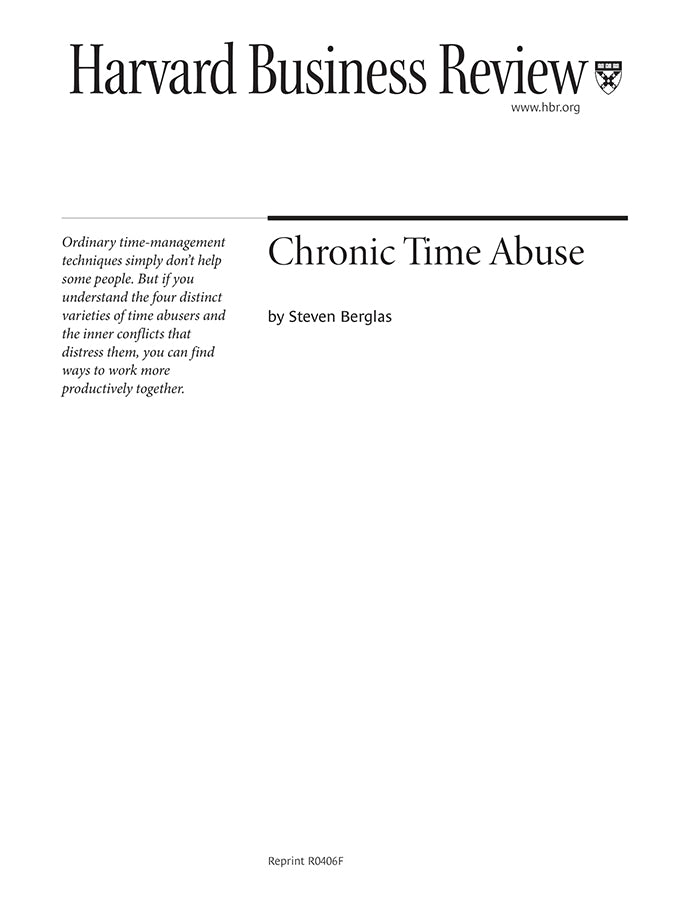Chronic Time Abuse
受取状況を読み込めませんでした
Anyone who has ever managed people who abuse time--whether they are chronic procrastinators or individuals who work obsessively to meet deadlines weeks in advance--knows how disruptive they can be to a business's morale and operating efficiency. But lessons in time management will have no impact on these employees. That's because real time abuse results from psychological conflict that neither a workshop nor a manager's cajoling can cure. Indeed, the time abuser's quarrel isn't even with time but rather with a brittle self-esteem and an unconscious fear of being evaluated and found wanting. This article describes four types of time abusers typically encountered in the workplace: Perfectionists are almost physically afraid of receiving feedback. Their work has to be "perfect," so they can increase their likelihood of earning a positive evaluation or at least avoid getting a negative one. Preemptives try to be in control by handing in work far earlier than they need to, making themselves unpopular and unavailable in the process. People pleasers commit to far too much work because they find it impossible to say no. Procrastinators make constant (and often reasonable-sounding) excuses to mask a fear of being found inadequate in their jobs. Managing these four types of people can be challenging--time abusers respond differently from most other employees to criticism and approval. Praising a procrastinator when he is on time, for instance, will only exacerbate the problem, because he will fear that your expectations are even higher than before. In fact, some time abusers, like the perfectionist, may need professional treatment. This article will give you insight into why they are the way they are--and what can be done to help them manage their problems.
【書誌情報】
ページ数:12ページ
サイズ:A4
商品番号:HBSP-R0406F
発行日:2004/6/1
登録日:2012/3/28


